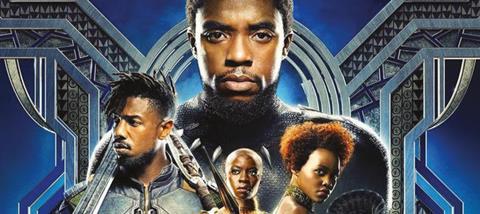Another superhero movie is hardly news, but Black Panther is having a huge impact globally, including on our children and young people.

The film grossed $400m in two weeks at the box office, making it the fifth biggest opening weekend movie in the world. Michelle Obama’s tweet: “Congrats to the entire #blackpanther team! Because of you, young people will finally see superheroes that look like them on the big screen…”, has been retweeted thousands of times.
Everybody I speak to about it exhibits an overwhelming sense of pride. At times they sound deeply emotional. But why is a comic book film moving people to tears, and inspiring artists, writers, professionals and famous people?
I decided to Google superheroes. The image results were white, white and white. I searched Avengers (my favourite Marvel movie) and came across the same whitewash. Then the penny started to drop.
The Oxford English Dictionary describes representation as “the description or portrayal of someone or something in a particular way”. Other words such as ‘image’, ‘impression’, ‘likeness’, ‘narration’, ‘portrayal’ and ‘reproduction’ are connected. When you look at the word through a social sciences lens, it is about values, ideas, beliefs and shared practices. In superhero movies – and pretty much everywhere else – black people are not represented.
I can see so many links here to my work with mental health and the criminal justice system, especially with young people. If someone is not given space to create or see themselves represented in a better light – be it at board, work or creation level – they will walk away from something that is not deemed for them, or feel a level of resentment that leads them to want to destroy it.
Black Panther has opened up exciting new conversations, mainly because the cast, writing team and producers are predominantly black. The film has been marked as an opportunity for others in the film industry (and beyond that) to be successful – massively successful – and not just as a box-ticking exercise. It particularly raises aspirations for young black women. The film’s leading female characters show they do not have to be displayed as mediocre, but instead as strong warriors.
For me, the most exciting thing about Black Panther is not just that its cast and crew are dominated by black people, but that it shows black culture in a positive way. From a black, African and Caribbean perspective, we are normally depicted in a negative light, often related to slavery, oppression or crime. Conversely, Black Panther depicts independence, culture, history and power.
It makes me question why there isn’t more of this. Where is the supply chain? Where are the creatives that can do this, and why aren’t they visible? It would appear as though they are very few and far between, but that doesn’t seem fair. If you take the music industry, for example, artists like Stormzy are creating music and collaborating with industry royalty. Clearly a lack of creativity is not the cause, so perhaps the lack of a level playing field, where access to creative opportunities are fair and equal for all, is to blame. I think this relates directly to the lack of diversity at board and recruitment level; not just regarding race and ethnicity, but also class, age and gender. So how do we get these hidden creatives out in the open, especially among our young people?
Recently, I have been thinking about this in relation to the Astonish programme with Birmingham Hippodrome. The programme aims to develop leadership among diverse creative people. It allows participants from different backgrounds to share and uncover new areas of work and practice, and to access new networks and commissions. A key part of this is the importance of relatable role models in improving diversity within the arts for young and new talent.
I think youth and children’s ministries are vital in creating positive role models and challenging any lack of representation. The key to this is found in the gospel. We must empower the next generation to believe in the impossible and have faith in “the things not seen but hoped for” so that, regardless of what it looks like and what we are seeing, they can believe they have a Godgiven assignment to bring change.
Black Panther has helped to set a precedent for more great content from diverse groups, and we need to get our children to produce their own.
We need to encourage them that they can be part of a group, even if they are not currently represented within it. We need to step out of our usual networks and try genres and styles that we normally wouldn’t. Have you listened to rap worship? Hip hop? Expose yourself to something new. Let’s take part in more intentional networking and share what we are doing so we can better represent and celebrate all that God is doing.












































